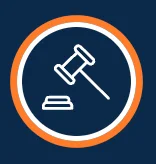Police reports play an important role in car accidents, verifying that the accident occurred and recording important information. They also have some limitations. If you’re in a car accident, it’s important to understand the role of a police report.
Jordan Law Center explains why police reports matter in car accidents.
Police report car accidents
DO:
- Record basic facts of the accident, such as where and when it occurred.
- Identify drivers, owners, and vehicle information.
- Collect information when someone is too injured to collect it themselves.
- Based on their training, provide an officer’s opinion about what happened.
- Fulfill the obligation to report the car accident to law enforcement.
DO NOT:
- Legally decide who is at fault for the accident.
- Have detailed follow-up information that may be important, such as vehicle inspections or accident reconstruction.
- Assign percentages of shared fault (also called comparative negligence).
- Identify the amount of damages or the appropriate amount of compensation.
- Notify the insurance company that an accident occurred or start an insurance claim.
Law enforcement car accident reports are important, but they are not everything. You may need to build on the information in a report or contest the information in a report. The report is a starting point for your insurance claim and compensation.
What To Know About Car Accident Police Reports
The police report establishes the basics.
A car accident police report establishes the basics. It records the fact that the car accident occurred, noting the place, time, and vehicles involved. The insurance company will generally accept this information.
It can help with an investigation.
For minor accidents, the police report may give you everything you need. However, in many cases, the police report is just a starting point. The report will have the names of the people involved and a narrative of what happened. You can use this information to conduct your investigation and build your case.
The police report is not conclusive.
Remember that the police report is not conclusive. The law enforcement officer is essentially a witness with training in accident reporting, but they’re not the judge. They may have an opinion about fault, but they might be wrong. There are also ways to challenge the facts and conclusions contained in a police accident report.
Can You File a Claim Without a Police Report?
You can file a claim for a car accident without a police report, but you can expect the insurance company to give your claim extra scrutiny. They’re sure to ask why a report was never made and may assume the worst. To file a claim without a report, you must have collected the necessary information, including the other vehicle, driver, and insurance, in another way.
Legal Requirements for Filing a Police Report After a Car Accident
In South Carolina, you must call the police after an accident if there is:
- Bodily injury
- Death
- Apparent property damage of $1,000 or more
Most accidents generally meet one of the above.
If the police investigate, they must forward a written report to the DMV.
The police may choose not to respond. It might depend on how serious the accident is, how busy the police are, and how remote the location is.
If the police don’t investigate, you have 15 days to submit your report and provide proof of insurance.
Rules apply to owners and operators.
It’s only owners and operators who are legally required to report a traffic accident. Passengers and witnesses are not required to report. If you’re a passenger, it’s a good idea to make sure the police are notified. You can call the police yourself even though you’re not required to.
Errors in a Police Report
You may find simple errors in a police report. For example, the investigating officer may have written the wrong letter or number on your license plate. Clerical errors can and should be corrected.
Contact the investigating officer at their law enforcement department. They may ask you to provide proof. If the report says that there were no injuries, and you were injured, you may provide medical records.
Always get the police report promptly and review it carefully. Correcting an error can prevent the error from complicating your compensation claim.
How a Car Accident Lawyer Can Help
A car accident lawyer can help with:
- Obtaining a copy of the police report
- Identifying errors or things that are incomplete
- Determining where follow-up investigation may be beneficial
- Finding and correcting clerical errors
- Talking to witnesses and others involved
- Challenging conclusions of the law enforcement officer
- Building admissible evidence based on what’s in the police report
Car accident reports are not admissible in court.
If the police report is in your favor, stating that the accident is someone else’s fault, you may think that makes your case simple. You may think all you need to do is mark the police report for admission if your case goes to court. Unfortunately, it’s not that simple.
S.C. Rules of Evidence Rule 803(8) says that car accident reports are not admissible to prove negligence. The statements in the report are hearsay.
You must gather admissible evidence. For example, instead of admitting the report, which says that a witness said the light was green, you must call the person to the stand to say that the light was green.
The Rules of Evidence are complex and nuanced so it’s important to work with an experienced car accident attorney as you prepare and present your case. At Jordan Law Center, we know the Rules of Evidence, and we can prepare your case with an understanding of how the police report may be used in your favor.
Talk to a Lawyer
Talk to a lawyer about the role of police reports in car accidents. At Jordan Law Center, we don’t just handle car accident claims—we get results. See how a lawyer can help and what your claim may be worth. Contact us now.







“There is not enough GREAT THINGS I could say about Jordan Law Center.”